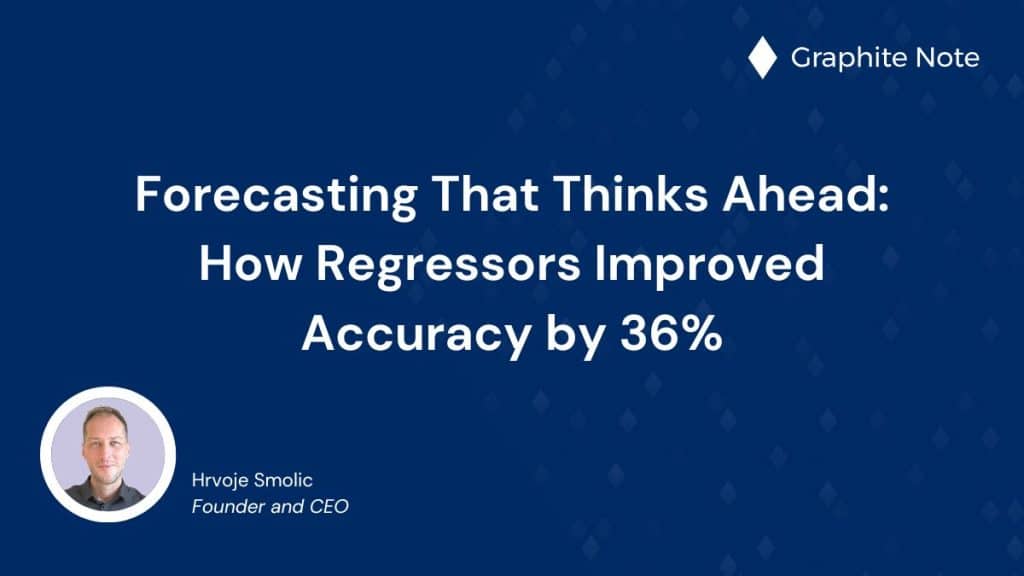It is no longer enough for financial institutions to rely solely on traditional methods of analysis. To stay ahead of the curve, businesses must use the potential of Artificial Intelligence (AI) analytics in finance. AI has the capability to transform the way we understand and make decisions in the financial world. Businesses increasingly rely on AI analytics to enhance their decision-making processes. Traditional analytics often struggles with large data sets, making it cumbersome for financial professionals. In contrast, AI data analytics simplifies these processes, enabling faster and more accurate insights. Simplified AI analytics is transforming finance by streamlining financial insights.
Understanding AI Analytics in Finance
AI analytics involves the use of advanced algorithms and machine learning techniques to process large volumes of financial data. AI can identify patterns, trends, and correlations that may not be readily apparent to even the most experienced financial analysts. Using the power of AI, organizations can gain deeper insights into market dynamics, customer behavior, and risk assessment.
The Role of AI in Financial Analysis
Artificial Intelligence augments the capabilities of human analysts by quickly processing large volumes of data, reducing the time and effort required for analysis. It can quickly process large volumes of data, reducing the time and effort required for analysis. With AI algorithms that can learn from past data, accurate predictions and identification of potential risks become possible. This enables financial institutions to make informed decisions with greater speed and accuracy.
Financial institutions are adopting various AI analytics tools to improve their operations. These tools facilitate data analysis by automating complex calculations and providing real-time insights. Using predictive analytics, organizations can forecast trends and make informed decisions based on historical data. This capability is crucial for maintaining a competitive edge in the finance sector.
AI analytics in finance offers a wide range of key features that enhance financial analysis. One of the most notable features is its ability to automate repetitive tasks. Through automating these tasks, AI frees up valuable time for financial professionals to focus on strategic initiatives and higher-value activities. This increases productivity and allows for more comprehensive analysis and decision-making.
Key Features of AI Analytics in Finance
The key features of AI analytics in finance include:
- Automating Repetitive Tasks: One of the key features of AI analytics in finance is its ability to automate repetitive tasks. This frees up valuable time for financial professionals to focus on strategic initiatives and higher-value activities.
- Reduced Risk Of Human Error: AI can also perform complex calculations with precision and accuracy, minimizing the risk of human error. AI analytics in finance provides a level of accuracy and precision that is unmatched by traditional methods. Using advanced algorithms, AI can perform complex calculations with a high degree of accuracy, minimizing the risk of human error. This accuracy is crucial in financial analysis, where even the smallest miscalculations can have significant consequences.
- Data Visualization: AI-powered analytics platforms often provide intuitive visualizations, making it easier for users to interpret and communicate financial insights.
- Scalability: With the ability to process vast amounts of data, AI can handle the ever-increasing volume of financial information generated in today’s digital age. This scalability empowers financial institutions to analyze data at a much larger scale, uncovering insights that were previously hidden.
- Adaptability: AI algorithms can continuously learn and adapt to changing market conditions, ensuring that financial analysis remains relevant and up-to-date. This adaptability enables organizations to respond quickly to market trends and make proactive decisions.
The Benefits of Simplified AI Analytics
Implementing simplified AI analytics can have a transformative effect on financial organizations. It offers numerous benefits that can enhance decision-making and streamline operations.
Streamline Financial Operations
When automating routine tasks such as data entry, reconciliation, and report generation, organizations can improve efficiency and reduce the risk of errors. This empowers financial teams to focus on higher-value activities, such as strategic planning and financial forecasting.
Real-Time Insights
AI analytics provides real-time insights and empowers financial professionals to make proactive decisions. Through continuously monitoring market conditions and analyzing data from various sources, AI algorithms can alert financial professionals to potential risks and opportunities. This enables organizations to stay ahead of the curve and make timely adjustments to their investment strategies. AI analytics enables financial professionals to make data-driven decisions backed by real-time insights. Using sophisticated algorithms, organizations can identify emerging trends, predict market movements, and make informed investment choices. This reduces the reliance on gut feelings and subjective assessments, leading to more accurate and profitable outcomes for businesses and their clients. The integration of AI algorithms plays a crucial role in enhancing analytical capabilities.
Risk Management
Machine learning algorithms process large volumes of data efficiently, identifying patterns that human analysts might miss. Financial analysts use these insights to understand customer behavior and market trends better. Moreover, machine learning models continuously improve their accuracy as they analyze more data points. Moreover, AI analytics can assist financial professionals in conducting comprehensive risk assessments. Through analyzing historical data and market trends, AI algorithms can identify potential risks and calculate their probabilities. This empowers organizations to develop robust risk management strategies and make informed decisions that minimize potential losses.
Competitive Edge
AI analytics can provide financial organizations with a competitive edge in the market. Through analyzing vast amounts of data in a fraction of the time it would take a human analyst, AI algorithms can uncover hidden patterns and correlations that may not be immediately apparent to human analysts. These insights can give organizations a unique advantage in identifying new business opportunities, optimizing pricing strategies, and mitigating risks.
Actionable Insights
Using an effective analytics solution empowers businesses to convert raw data into actionable insights. This process involves analyzing unstructured data from various sources, including social media and customer feedback. Through employing natural language processing, organizations can interpret human language effectively, extracting valuable information from customer interactions.
Generative AI
Financial professionals benefit significantly from the use of generative AI. Generative AI automates the generation of reports and visualizations, saving time and reducing human error. As a result, financial analysts can focus on strategic tasks rather than routine data processing.
Enhanced Business Performance
The shift from traditional data analytics to AI-driven solutions enhances business performance. Companies can now handle large amounts of complex data with ease. The ability to analyze historical data alongside current trends provides a comprehensive view of market dynamics. In this evolving landscape, understanding the role of data scientists is essential. Data scientists use advanced techniques, including deep learning, to extract insights from complex datasets. Their expertise ensures that organizations can leverage the full potential of their data assets.
Improved Customer Experience
Ultimately, simplified AI analytics empowers businesses to enhance their customer experience. Simplified AI analytics offers financial organizations the advantage of tailored insights based on customer behavior, through which they can improve their offerings and cultivate customer loyalty.
Regulatory Compliance
AI analytics can assist financial organizations in complying with regulatory requirements. Through continuously monitoring transactions and analyzing data for potential compliance issues, AI algorithms can help organizations identify and address any non-compliance issues promptly. This ensures that financial organizations operate within legal and ethical boundaries, avoiding costly penalties and reputational damage.
Implementing AI Analytics in Your Financial Processes
While the benefits of AI analytics are enticing, implementing this technology can be a complex endeavor. With careful planning and strategic execution, organizations can successfully integrate AI analytics into their financial processes.
Steps to Integrate AI Analytics
The first step in integrating AI analytics is to assess your organization’s data infrastructure and identify any gaps or limitations. This may involve upgrading your systems or implementing new technologies. Next, it is important to define clear objectives and establish key performance indicators (KPIs) to measure the success of your AI analytics implementation. It is also essential to invest in training and upskilling your workforce to ensure they can effectively leverage the power of AI. Finally, organizations should continuously monitor and evaluate the performance of their AI analytics solution, making necessary adjustments as needed.
Overcoming Challenges in Implementation
Implementing AI analytics may come with its fair share of challenges. Common obstacles include data privacy and security concerns, ethical considerations, and resistance to change. To overcome these challenges, organizations must prioritize transparency, accountability, and responsible AI practices. It is also crucial to have open lines of communication and engage key stakeholders throughout the implementation process.
Future Trends in AI Analytics for Finance
The future of AI analytics in finance holds immense promise. As technologies continue to evolve, businesses can expect significant advancements in this field. Experts predict that AI will become an integral part of the financial industry, revolutionizing various aspects of operations, including risk management, fraud detection, and customer service. Machine learning algorithms will become even more sophisticated, enabling more accurate predictive analytics and personalized financial advice. AI-powered virtual assistants may become the norm, offering instantaneous customer support and financial guidance. To prepare for the future of financial analytics, organizations must embrace a culture of continuous learning and innovation. This involves staying updated on the latest advancements in AI and analytics, investing in research and development, and fostering collaboration between financial professionals and data scientists. Organizations can also leverage predictive and prescriptive analytics tools like Graphite Note to simplify the implementation of AI analytics, empowering businesses to gain actionable insights and make informed decisions.
As we look towards the future, embracing advancements in AI analytics will be important for staying ahead in an ever-evolving financial landscape. The integration of AI tools enhances decision-making capabilities, reduces human error, and improves overall business performance.




